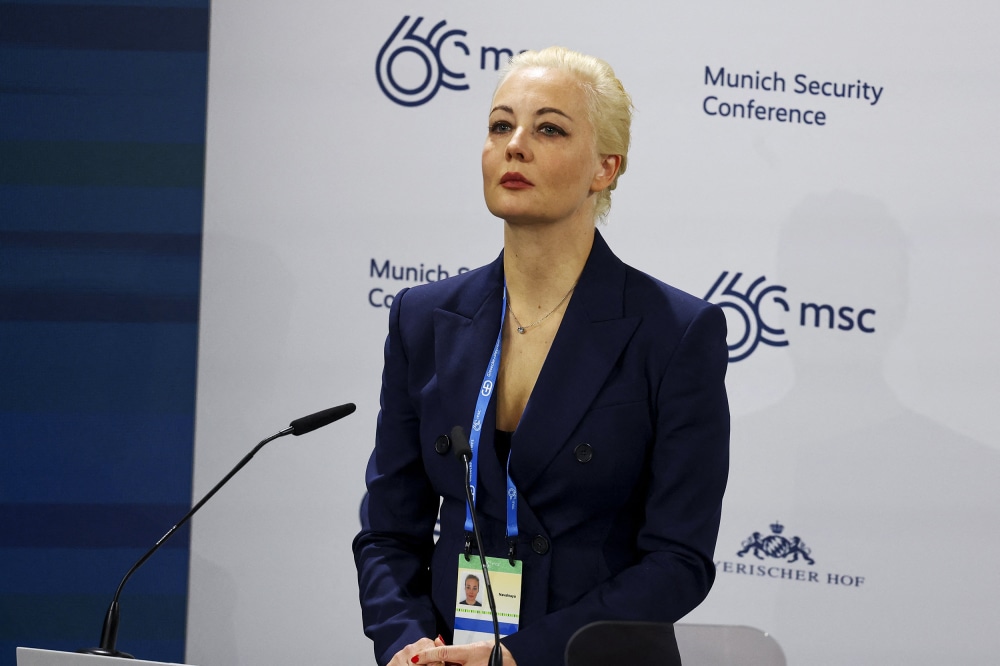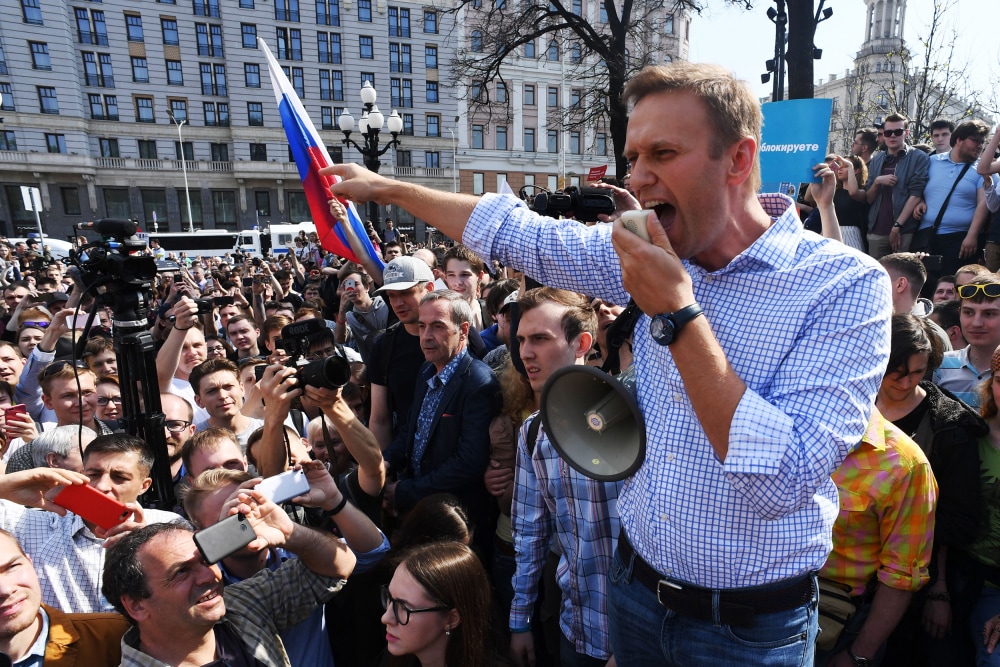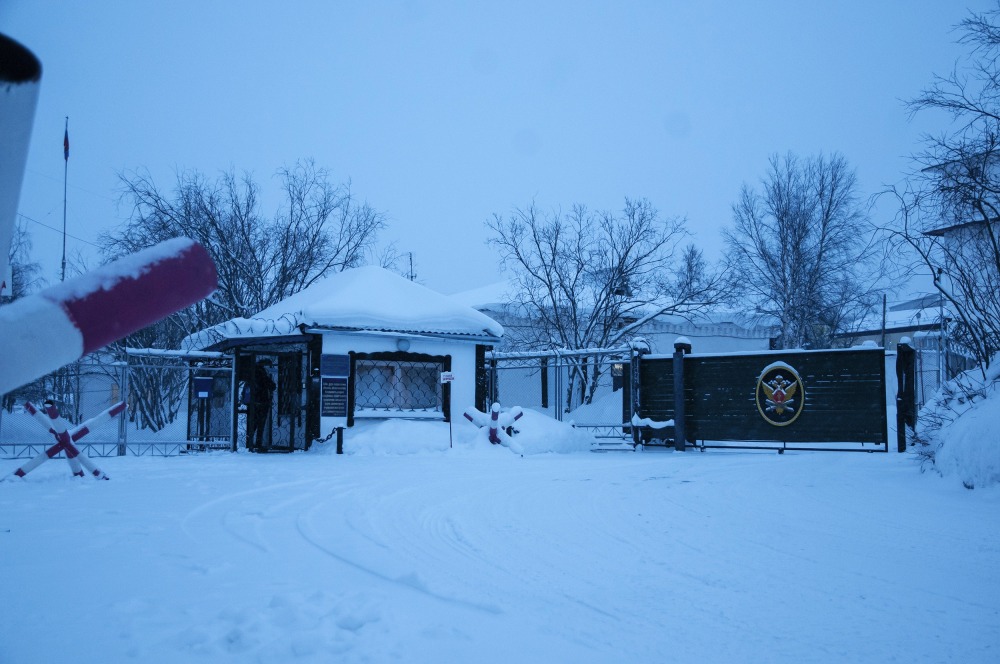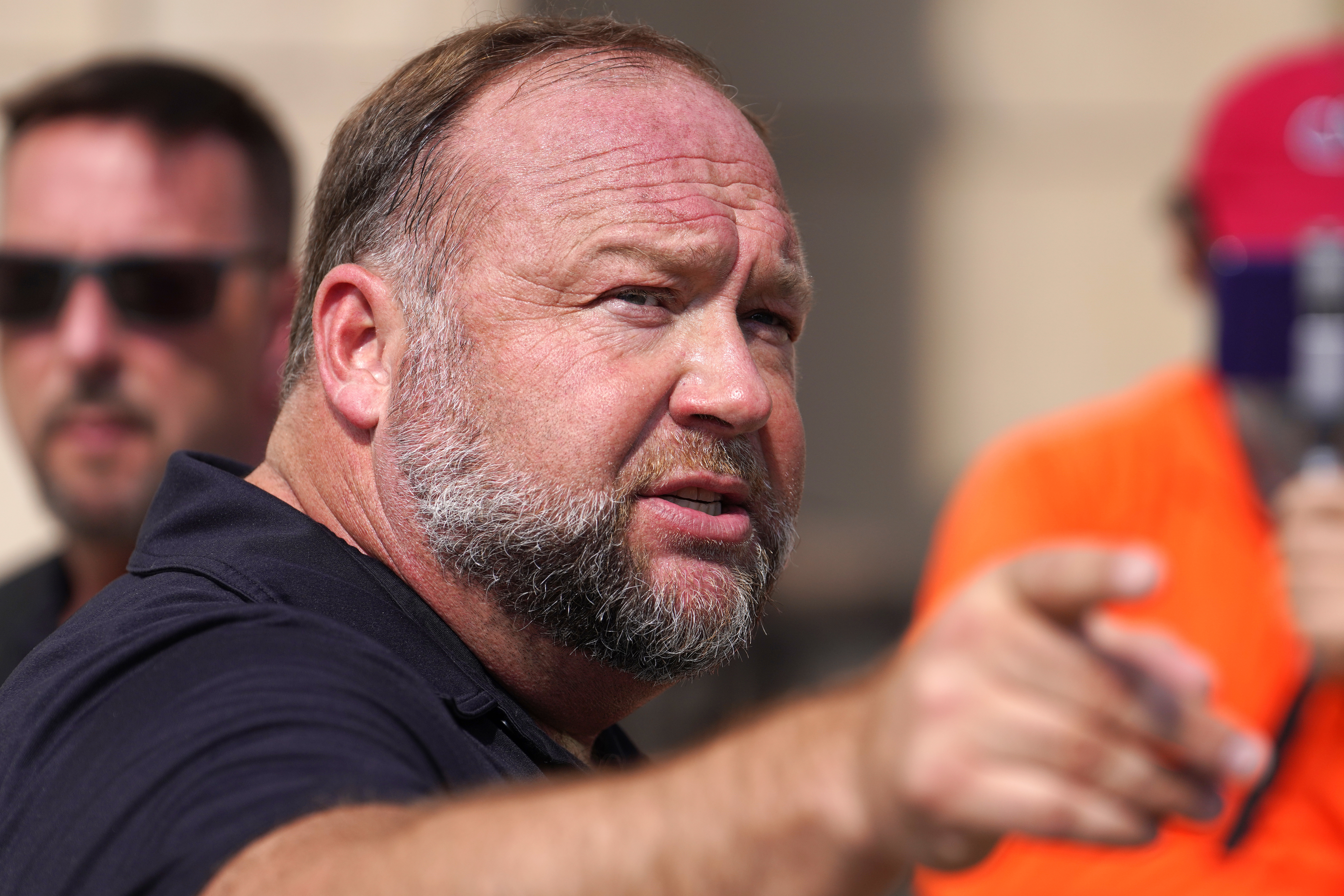Russian opposition leader Alexei Navalny has died in prison, the country's prison service said Friday, following a yearslong struggle against official corruption and President Vladimir Putin's government that saw him survive several poisoning attempts.
He was 47.
Navalny was poisoned with a military nerve agent while on a business trip in Russia in 2020 — an attempt on his life that he blamed directly on Putin — and spent his final years behind bars as the Russian leader reshaped the country to rally behind his war in Ukraine.
News of his death, which comes as the Kremlin is preparing to orchestrate another election victory for Putin in March, drew outrage from the West, where many leaders blamed Putin. President Joe Biden said he was "both not surprised and outraged."
We've got the news you need to know to start your day. Sign up for the First & 4Most morning newsletter — delivered to your inbox daily. Sign up here.
The Kremlin responded, decrying what it said were “absolutely rabid statements.”
Navalny was serving a combined 30 ½-year jail sentence when he died. He went missing in Russia's penal system in December, eventually turning up at a high-security penal colony in a remote town above the Arctic Circle.
Russia's Federal Penitentiary Service said in a statement that Navalny had died after feeling unwell following a walk Friday.
U.S. & World
The day's top national and international news.
“On February 16, 2024, in penal colony No. 3, convict A.A. Navalny felt unwell after a walk, almost immediately losing consciousness,” the prison service for the Yamalo-Nenets region, where Navalny was moved, said in a statement on its website.
“The facility’s medical workers immediately arrived at the scene and an emergency medical team was called in. All necessary resuscitation measures have been carried out, but they did not yield positive results. Emergency medics confirmed the death of the convict,” the statement added.
There was no immediate information about what exactly caused Navalny's death, with the region's investigative committee saying it has launched a "procedural investigation."
Navalny’s wife, Yulia, received a standing ovation at the Munich Security Conference, where Western officials gathered Friday.
“I don’t know whether I should believe the news,” she said, explaining it had come from state sources she said were known for lying.
If it’s true, she said, she wants Putin and his allies “to know that they will be punished for what they have done with our country, with my family and with my husband. They will be brought to justice, and this day will come soon.”

Navalny's allies have long raised concerns about his health and poor conditions in jail, where they said he had to spend many days in crammed "punishment cells" for the most minor of conduct violations.
But he appeared healthy as he addressed a court via video link from the penal colony Thursday, laughing and cracking jokes.
Navalny's mother said that her son had also been “healthy and happy” when she last saw him on Monday, according to Russian media.
“I don’t want to hear any condolences. We saw him in prison on the 12, in a meeting. He was alive, healthy and happy," Lyudmila Navalnaya wrote in a Facebook post on Friday according to the Russian newspaper Novaya Gazeta.
A spokesperson for the opposition leader said on X that they did not have any confirmation of his death and that Navalny's lawyer was traveling to the town where he was held. "Russian authorities publish a confession that they killed Alexey Navalny in prison," Leonid Volkov, a close ally of many years, said in a post on X.
Reaction to Navalny's death was also swift in the West.
The news "only underscores the weakness and rot at the heart of the system that Putin has built. Russia is responsible for this,” Secretary of State Antony Blinken said in Munich, where he met with Navalny's wife to express his condolences.
Biden, addressing the nation later from The White House, paid tribute to Navalny's work as a "powerful voice" for truth.
"Make no mistake, Putin is responsible for Navalny's death," Biden said. He said the U.S. did not know exactly what happened but that "there is no doubt that the death of Navalny was the consequence of something that Putin and his thugs did."
NATO chief Jens Stoltenberg said "Russia has serious questions to answer," while European Union Commission President Ursula von der Leyen said on X that Navalny's death was a "grim reminder of what Putin and his regime are all about."
Ukrainian President Volodymyr Zelenskyy, who was also in Munich, said it was “obvious” that Putin was directly behind Navalny's death. "He doesn’t care who dies to keep his position," Zelenskyy added. "Putin must lose everything and answer for what he has done."
Kremlin spokesman Dmitry Peskov said Putin was informed of Navalny's death. He later criticized the response from Western leaders.
“There is no information from medics. There is no information from forensic experts, no information from the Federal Prison Service. And then [we see] such statements," Peskov said. "These are absolutely rabid statements. We consider such statements absolutely unacceptable."
A thorn in the Kremlin's side
Navalny's death leaves Russia’s opposition, wounded by years of harassment and prosecution, without a clear leader. All of Putin’s most high-profile critics are now either dead, jailed or in exile.
Navalny was, undoubtedly, the biggest thorn in the Kremlin’s side.
For more than a decade, he led nationwide protests against the authorities, ran for office to challenge members of the Russian establishment and set up a network of campaign offices across the country that have since been dismantled.
Born in 1976 in the tiny town of Bytyn, near Moscow, Navalny was educated as a lawyer and economist, but entered politics in 2008, starting his anti-corruption fund, FBK, three years later.
He was known for his oratory skills, as well as his use of the online space to promote the results of his investigations and spread his ideal of what he called the “wonderful Russia of tomorrow.” His digital savvy made him particularly popular among Russia’s more democratically minded teenagers and youth.
Navalny rose to prominence as Russia’s most outspoken Kremlin critic after leading a series of anti-corruption investigations into members of the Russian elite.

His 2017 exposure of the lavish lifestyle of Dmitry Medvedev, a former president and prime minister, led to mass protests. And an investigation into a luxurious “secret palace” on Russia’s Black Sea coast, purportedly owned by Putin, resulted in a wave of indignation across Russia in 2021.
Navalny tried to run against Putin in the 2018 presidential election, but was barred from entering the race because of a 2014 embezzlement conviction, which he categorically denied as fabricated to keep him out of politics. Russian officials made a point of not referring to Navalny by name to avoid raising his profile in public.
While on a business trip in Russia in August 2020, Navalny was poisoned with the military nerve agent in an attempt on his life that he blamed directly on Putin.
Navalny survived his 2020 poisoning, thanks to the insistence of his family that he be airlifted to Germany, where he underwent treatment and a long rehabilitation process.
The Kremlin denied any involvement in his poisoning, which was condemned by Western governments and led to a further straining of relations with Russia.
Navalny nonetheless decided to return to Russia in early 2021 and was arrested upon landing on charges stemming from the 2014 embezzlement case. He was sentenced to 2 ½ years in prison for a parole violation linked to that conviction. The decision came days after more than 5,000 people were detained across Russia in rallies supporting Navalny.
His allies have also been persecuted, and his anti-corruption fund was declared an extremist organization a few months after his sentencing, forcing it to shut down and most of the top staff to flee abroad.
He was tried on new charges of fraud and contempt of court and was sentenced to nine more years in jail. Then in August, he was sentenced to a further 19 years in a maximum security penal colony on charges of extremism, in what his allies and the international community called a Kremlin campaign to keep him incarcerated forever. Navalny has denied all charges against him as politically motivated.
His supporters have raised concerns about his treatment in custody and detention conditions, including access to proper medical care and frequent isolation in a tiny punishment cell.
In an interview with NBC News in 2021, Putin said he could not guarantee that Navalny would get out of prison alive.

But even in jail, Navalny continued to challenge Putin.
In his signature defiant but sarcastic style, Navalny detailed the realities of the Russian penitentiary system and promoted new anti-corruption investigations his team had been working on in exile. He issued anti-Kremlin statements through his lawyers and spoke openly against the Russian government’s actions in Ukraine.
He was designated a prisoner of conscience by Amnesty International in 2021, with the U.S. and other governments calling for his release.
A film about his life won an Oscar for best documentary feature last year.
But the win caused controversy in Ukraine, where some critics painted Navalny as a Russian nationalist and pointed to comments in 2014 in which he said he sees no difference between Ukrainians and Russians — a sentiment Putin used as one of the arguments behind his war eight years later. Navalny, however, criticized the Russian-backed insurgency in east Ukraine and later described the full-scale invasion as both unjust and self-defeating.
Navalny leaves behind his wife, Yulia, daughter Daria and son Zahar.
This story first appeared on NBCNews.com. More from NBC News:



